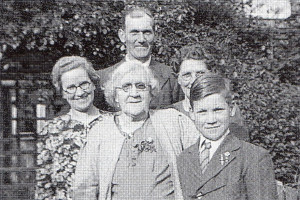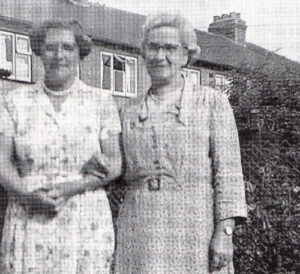
THE photograph of the Daily Express headline in Peter Kelly’s article on the ‘Evacueess’ Exhibition at the Imperial War Museum sparked off mixed feelings about an incident in my wife’s childhood.
In the late summer of 1940, an old friend of her mother had arranged for her sons Robert and John Baker to be evacuated to Canada, and suggested that she send her daughter with them. My wife’s mother spent several sleepless nights debating whether or not to let her only child go, and finally, in desperation, sought a neighbour’s advice. The neighbour was adamant that if she were faced with that predicament, her answer would be an emphatic ‘No’. Whereupon the decision was made – my wife stayed behind and the two boys sailed on the ill-fated City of Benares. The ship was 600 miles out in the tempestuous Atlantic when it was hit by a German torpedo at 10pm on the night of September 17. It was my wife’s 12 th birthday.
In pitch darkness, and buffeted by a ferocious gale, the storm-tossed liner began to list almost immediately, and sank within 20 minutes. Out of a total of 406 passengers and crew 294 were drowned, including 83 of the 90 evacuees. Among the survivors rescued by a warship was seven-year-old John Baker, who had watched as his older brother tried to climb into a lifeboat, only to miss his footing and fall to his death under the sinking ship.
The shock of receiving this traumatic news caused their mother’s hair to turn white
within days. In a harrowing and poignant account published in The Times, an eye witness described how “the children displayed a discipline and courage that were beyond praise, and obeyed every instruction given them”.

The City of Benares was the second Canada-bound evacuee ship to be torpedoed in the space of a month. Mercifully, there were no casualties on the previous occasion, but ironically two of the child survivors from the first vessel had re-embarked for a second crossing. This time they were not so fortunate.
An even crueller twist of fate befell a family of five children from South London. A short time earlier they had been in a public shelter during an air-raid in which their home was destroyed. They were taken over by the Children’s Overseas Reception Board, which found them accommodation on the City of Benares. None of them survived.
Soon afterwards the Germans added insult to injury by refusing to accept any blame for their actions, declaring that the real villain of the piece was “the criminal Churchill”.
My wife first learned of the tragedy when she saw newspaper pictures of John coming ashore huddled under a blanket with three other survivors. She often recalls the day in 1940 when a neighbour’s advice saved her from joining her two friends on that fateful voyage.
And she ponders that “There but for the grace of God go I”.
James Skinner








